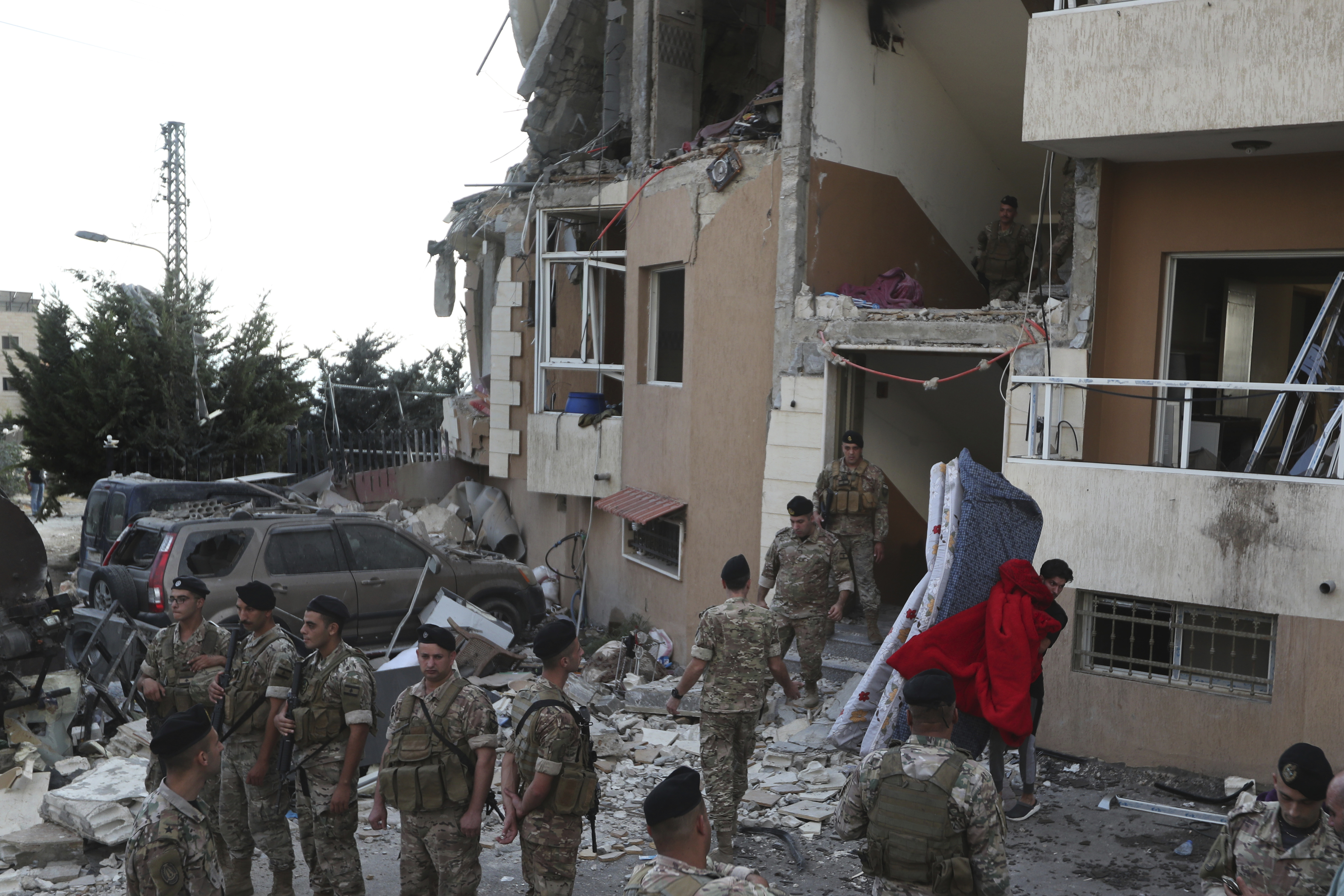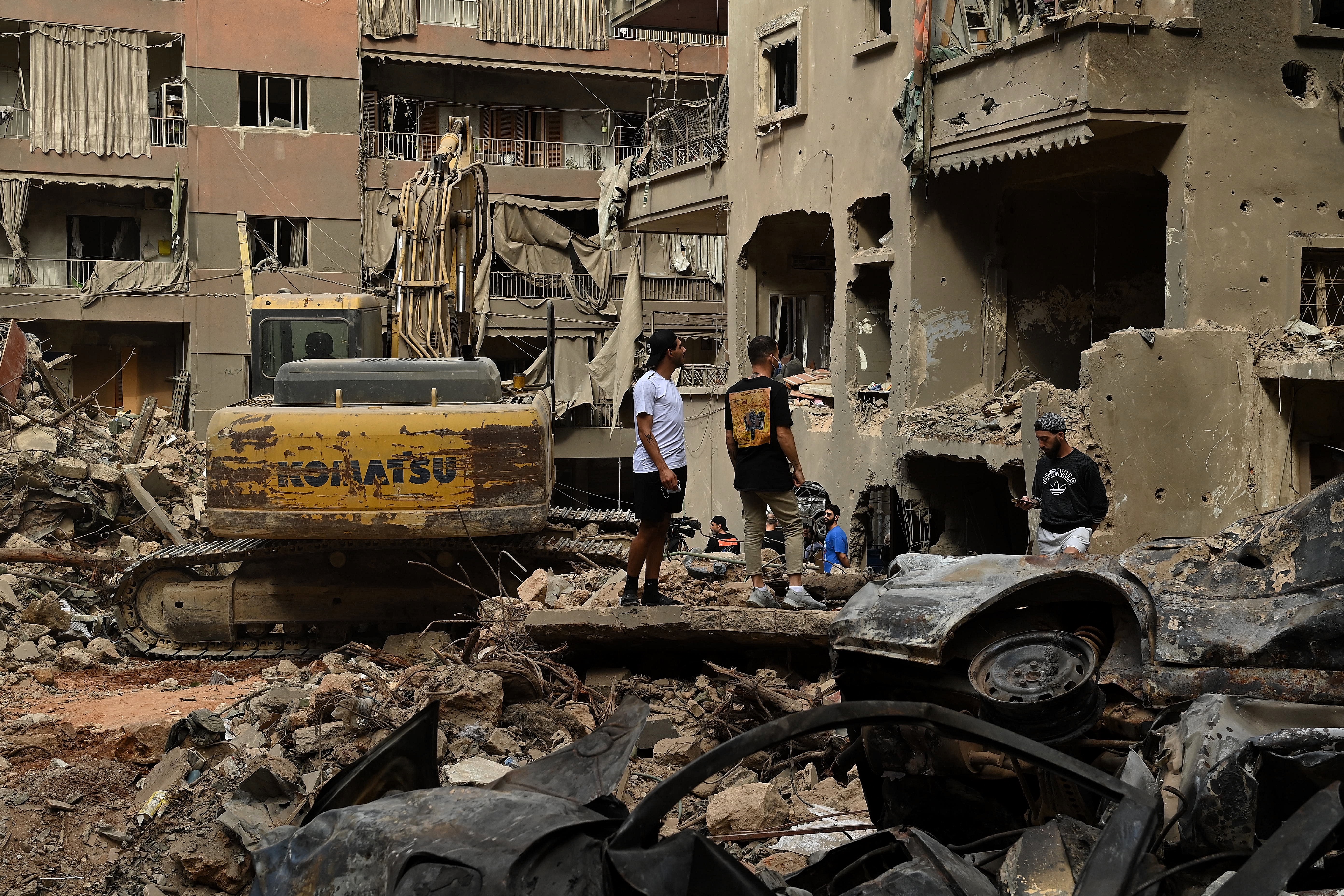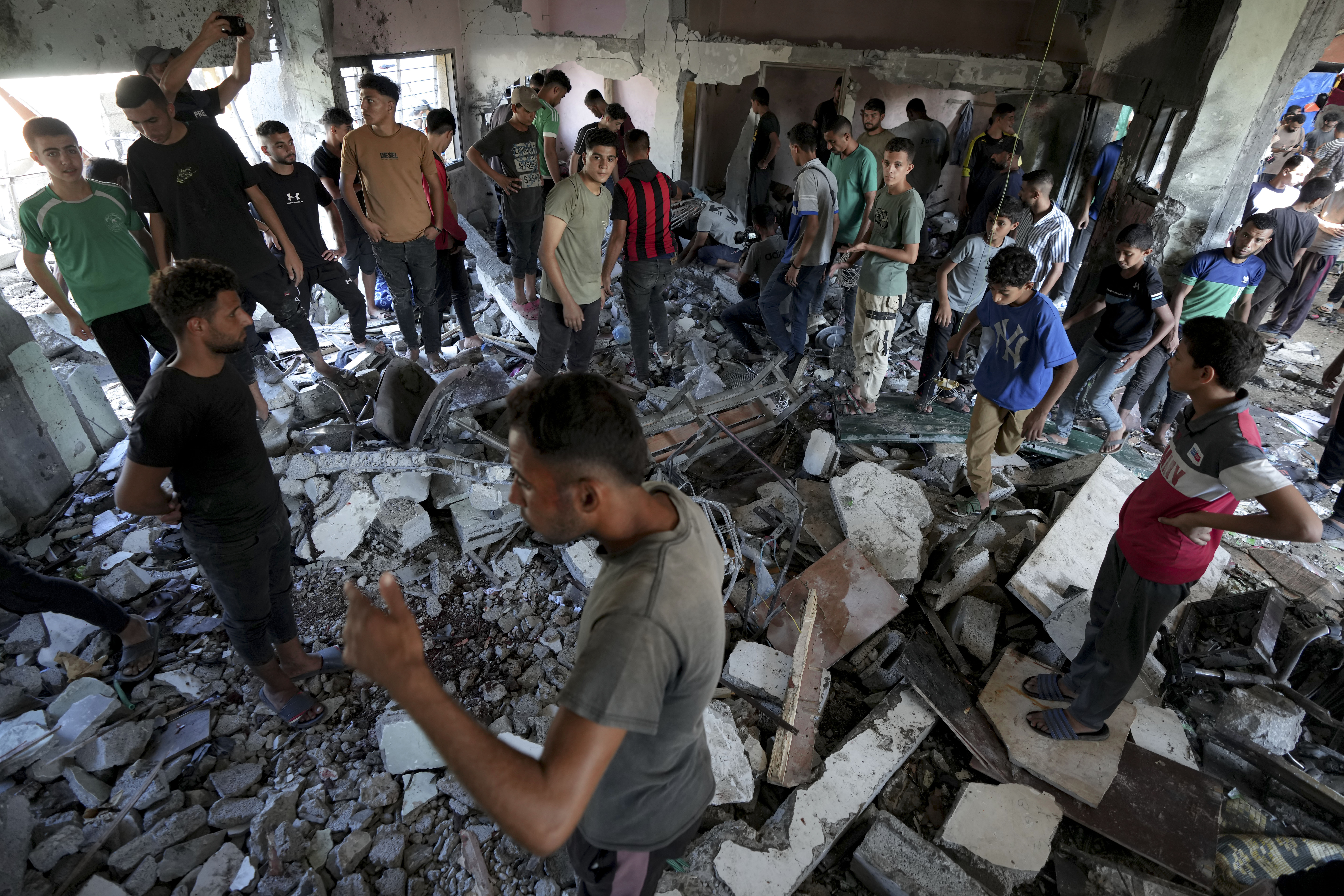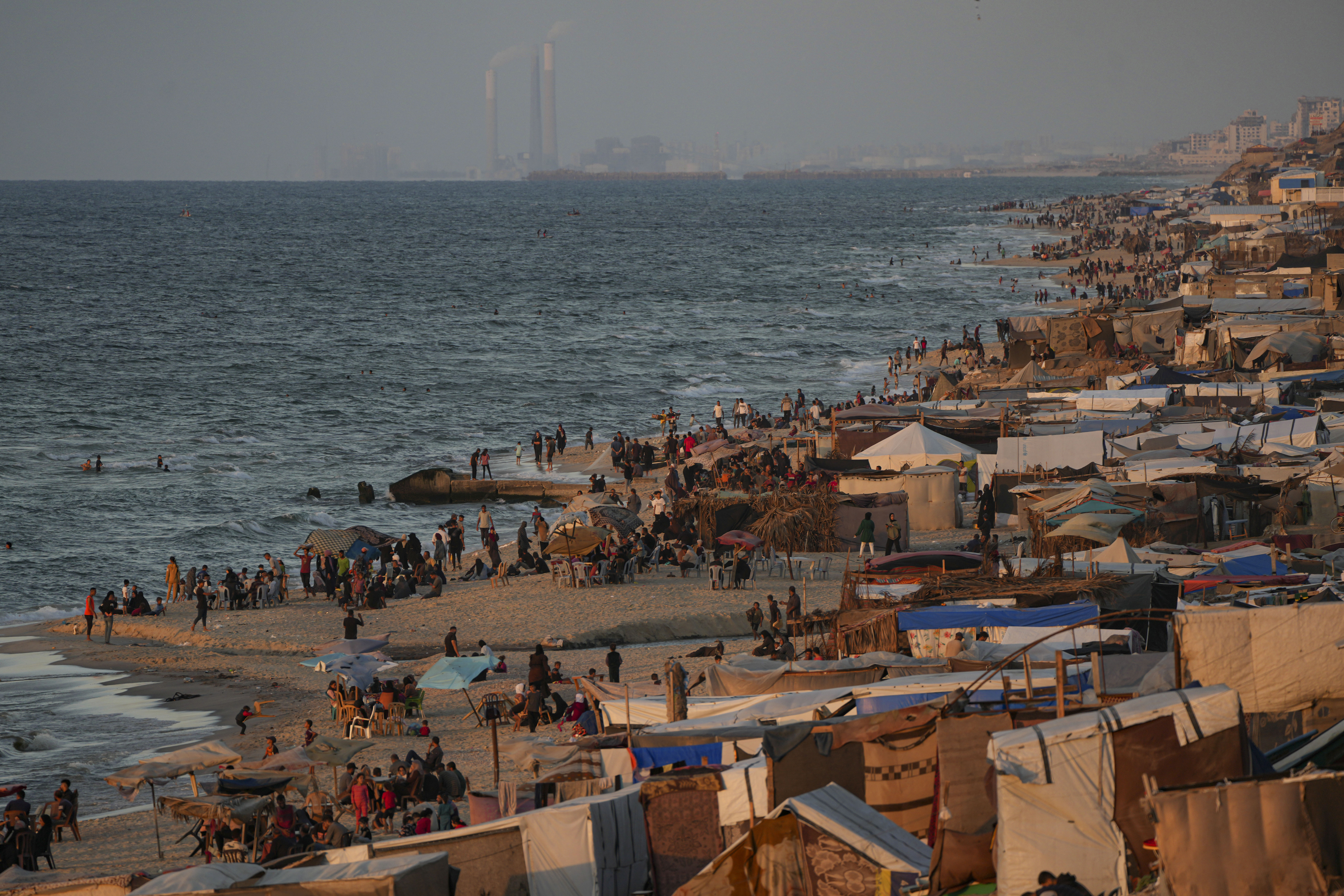Palestinians in northern Gaza described heavy Israeli bombardment on Saturday in the hours after airstrikes killed at least 22 people, as Israel warned people there and in southern Lebanon to get out of the way of offensives against the Hamas and Hezbollah militant groups.
In Lebanon, the UN peacekeeping force said its headquarters in Naqoura was hit again, with a peacekeeper struck by gunfire late Friday and in stable condition.
It wasn’t clear who fired.
READ MORE: Former Essendon star's wife arrested in raids at Bali sex spas
It occurred a day after Israel’s military fired on the headquarters for a second straight day.
Israel, which has warned peacekeepers to leave their positions, didn’t immediately respond to questions.
Hunger warnings emerged again in northern Gaza as residents said they hadn't received aid since the beginning of the month.
The UN World Food Program said no food aid had entered the north since October 1.
An estimated 400,000 people remain there.
Israel’s military renewed its offensive in northern Gaza almost a week ago while escalating its air and ground campaign against the Iran-backed Hezbollah in Lebanon.
Amid Israel's war with Hezbollah, a top UN official, Carl Skau, told The Associated Press he's concerned that Lebanon’s ports and airport might be taken out of service.
More than 1 million people have been displaced.
READ MORE: Boeing to lay off 17,000 staff to recoup finances during strike
Israel’s military said Hezbollah fired more than 300 projectiles over Yom Kippur, the holiest and most solemn day on the Jewish calendar.
Hezbollah claimed a series of rocket strikes on Israeli military positions and said fighters engaged an Israeli infantry unit attempting to enter Lebanese territory.
Israel's military also said it killed 50 militants in Lebanon.
Claims on either side couldn’t be verified.
Israeli airstrikes on Saturday hit multiple areas in southern and eastern Lebanon, according to the Lebanese Health Ministry.
Nine were killed in Maisra village in the northeast.
Four were killed in an apartment building on the edge of Barja south of Beirut.
Rayak and Tal Chiha hospitals in the Bekaa Valley were damaged. In Nabatieh, eight people were wounded.
The total toll in Lebanon over the past year of conflict between Israel and Hezbollah is now 2255 killed, according to the Lebanese Health Ministry.
READ MORE: Man charged for alleged hit and run that left cyclist fighting for life
More than 1400 people have been killed since mid-September.
It isn't clear how many were fighters.
“We will keep standing with the Lebanese people during these difficult circumstances and also with the Palestinian people,” the speaker of Iran’s parliament, Mohammad Bagher Qalibaf, said Saturday while touring the scene of an Israeli airstrike in Beirut.
Some Gaza residents are trapped.
In northern Gaza, residents told the AP many were trapped in their homes and shelters with dwindling supplies while seeing bodies uncollected in the streets as the bombing hampered emergency responders.
Those who rushed to the scene of the latest deadly airstrikes in the urban refugee camp of Jabaliya found a hole 20m deep where a home once stood.
At least 20 bodies were recovered while others likely were under rubble, emergency service officials said.
Elsewhere in Jabaliya, a strike on a home killed two brothers and wounded a woman and newborn baby, the officials said.
An afternoon strike on a home killed at least four people, including a woman, said Fares Abu Hamza, an official with the emergency service.
Israel’s military said it killed more than 20 militants in the Jabaliya area over the past day.
Military spokesperson Avichay Adraee told people in parts of Jabaliya and Gaza City to evacuate south to an Israeli-designated humanitarian zone as Israel plans to use great force “and will continue to do so for a long time.”
Israel has repeatedly returned to parts of Gaza as Hamas and other militants regroup.
The war has destroyed large areas of Gaza and displaced around 90 per cent of its population of 2.3 million people, often multiple times.
Once again, some families moved south on foot, in donkey carts or crowded in vehicles that navigated piles of rubble.
Others refused to go.
“It’s like the first days of the war,” said a Jabaliya resident, Ahmed Abu Goneim.
“The occupation is doing everything to uproot us. But we will not leave.”
The 24-year-old said Israeli warplanes and drones struck many neighbouring houses in the past week.
He counted 15 relatives and neighbors, including four women and five children as young as 3, killed in neighboring homes.
He said that there were dead in the streets.
Hamza Sharif, who stays with his family in a school-turned-shelter in Jabaliya, described “constant bombings day and night.”
He said the shelter hasn't received aid since the beginning of the month and that families “will run out of supplies very soon.”
Food is running out
The World Food Program said it was unclear how long the limited food supplies it distributed in northern Gaza earlier will last.
The UN’s independent investigator on the right to food last month accused Israel of carrying out a “starvation campaign” against Palestinians, which Israel has denied.
Israel's offensive in Gaza started after Hamas’ October 7 attack, when militants stormed into Israel, killing about 1200 people, mostly civilians, and abducting around 250 others.
Israel’s offensive has killed more than 42,000 Palestinians, according to local health authorities, who don't specify between combatants and civilians.
Gaza’s Health Ministry said that hospitals had received the bodies of 49 people killed over the past 24 hours.







